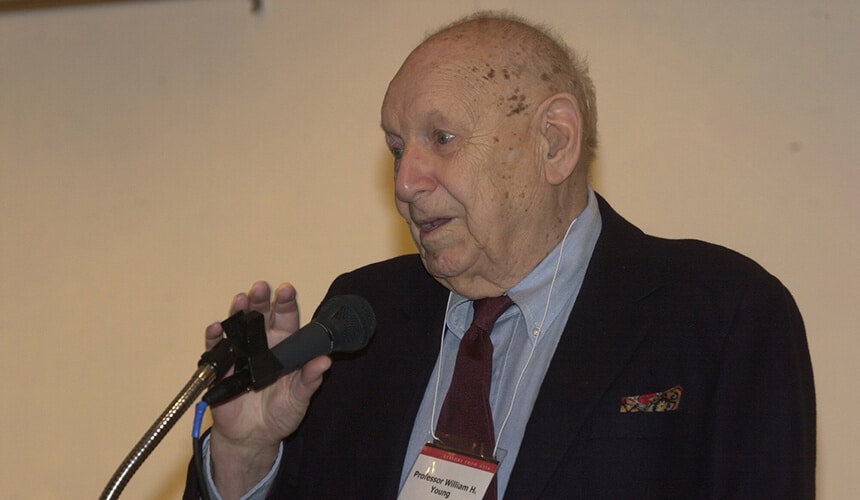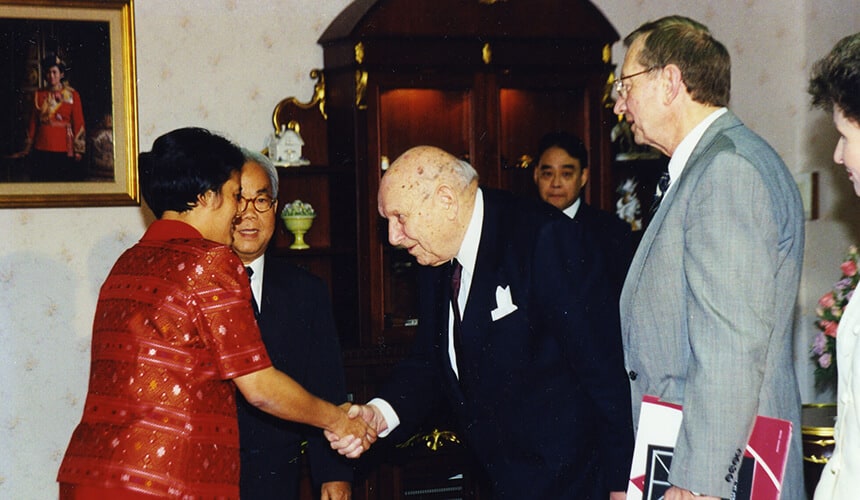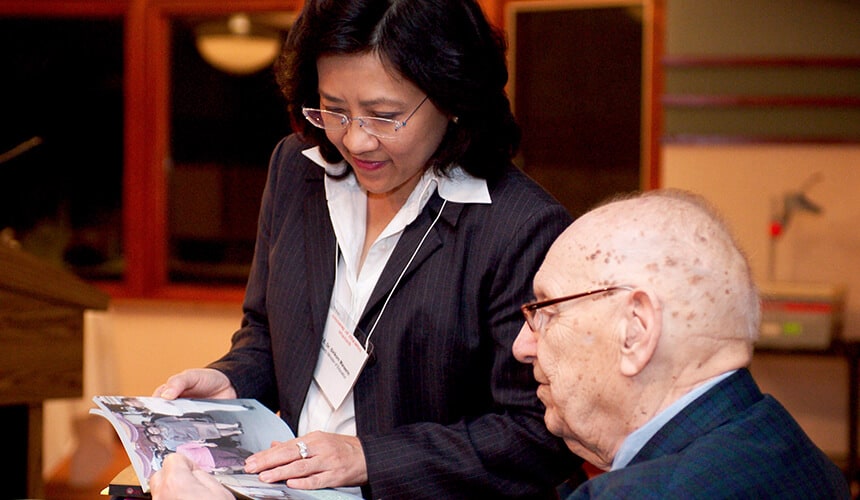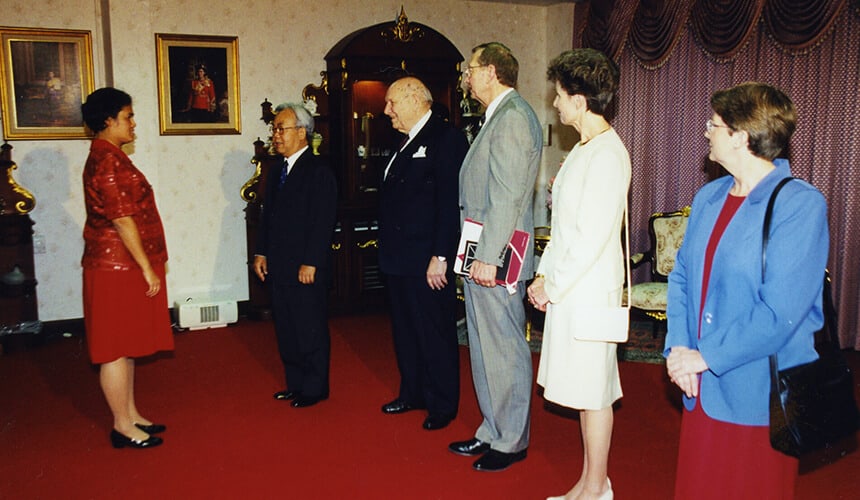William Young
Proponent of International Education
During his distinguished career in academia, William Young PhD 1941 came to be noticeably indispensable.
After receiving his doctorate and teaching elsewhere for a bit, he returned to the UW and served on its political science faculty for 36 years. Young taught courses in American government (including one that explored his interest in presidential politics, revised three editions of a popular textbook, and contributed to academic journals).
“His canniness and hard-headed realism about the world of politics were very important ingredients in my education as a political scientist,” said the late Frank Sorauf Jr. BA 1950, MA 1952, PhD 1953, a respected scholar and professor at the University of Minnesota. Young also served as the UW’s political science chair for eight years, calling upon what colleagues described as the “leadership, judgment, and skill” needed as the department was expanding during the 1950s.
But others also needed his good counsel. Taking a two-year leave of absence from the university, Young served as an adviser to Wisconsin governor Oscar Rennebohm. Upon his return, he filled two critical roles: assisting with budget matters for the university’s president and serving as its patent officer.
In 1967, with a startup grant from the Ford Foundation, Young began leading the Center for Development, a post he held until his retirement in 1983. The center offered graduate education for American and international students, training them to be successful on an increasingly global stage. He traveled extensively, making 30 trips to Asia, to arrange faculty and student exchanges. During his tenure, the center brought more than 300 students from 50 countries to be educated at the UW.
From The Park
The problems of developing countries must be met by teaching. A university must be responsive to the needs of other countries.
“Some of our students will have opportunities to serve overseas — whether in economics, trade, the military, health, or some other capacity. Their judgment and performance will depend on how well they are prepared,” Young said.
To honor his contributions to the board of trustees for Edgewood College and his belief in the importance of international education, the college established the William H. Young Center for Global Education.
Young loved to tell stories gleaned from his travels, and, clearly, those on campus, at the state capitol, and halfway across the world were happy to listen. “Professor Young had a deep and abiding faith in the power of knowledge, allied with wisdom and effective democratic government, to improve the world,” read his 2006 obituary. “Until his last days, he was seeking problems in need of solutions.”
 68° F
68° F


